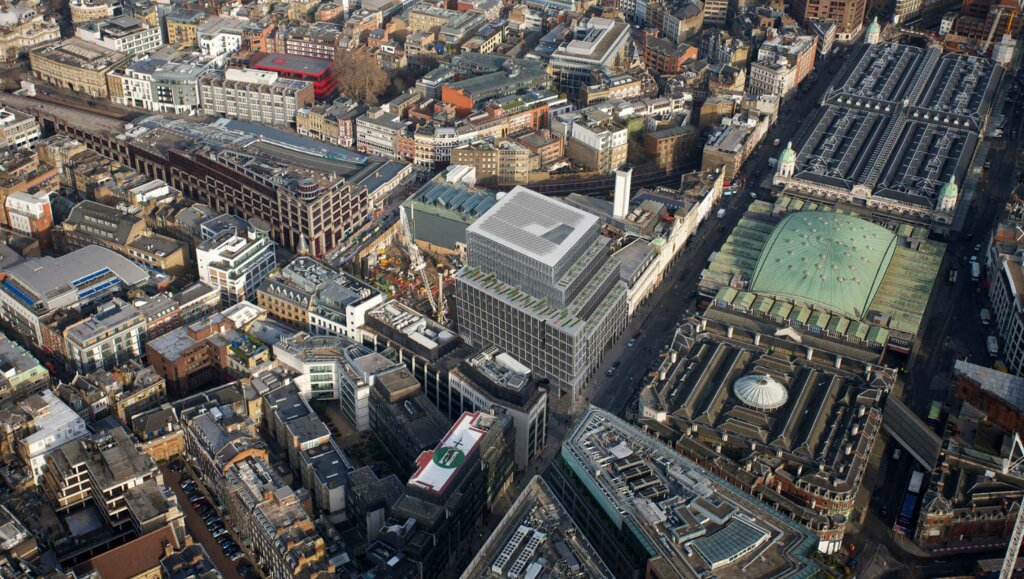Helical has achieved the UK's first BREEAM 2018 New Construction ‘Outstanding’ rating for the design stage of its 33 Charterhouse Square office development in London.
Helical and Ashby Capital acquired the 33 Charterhouse Street development site in a 50:50 Joint Venture in May 2019. Located opposite the new Museum of London and adjacent to Farringdon Station on the Elizabeth Line, it has planning permission for the development of c200,000 sq ft of office space. Mace Group is responsible for the construction phase of the scheme, which on completion in September 2022 will provide 10 floors of high quality and technologically enhanced office space.
The development achieved an overall score of 89 per cent, verified by independent assessor BRE Global, in accordance with BREEAM (Building Research Establishment Environmental Assessment Methodology), the world’s leading design and assessment method for sustainable buildings.
Working alongside RES Design, a leading London-based sustainability consultancy and part of the Long & Partners Group, the areas that the design excelled in are:
Management and Technology, which are intrinsically linked with the sustainable running of the building through the integration of smart systems and occupier engagement through a building specific app;
Site Ecology, through the delivery of initiatives to support native species, flora, fauna and invertebrates;
Water Management, by implementing water conscious fixtures and looking at grey water and rainwater harvesting and attenuation;
Pollution, with the aim to have no combustion of fossil fuels in the building.
Pavlos Clifton, Senior Development Executive at Helical, says: “Sustainability is at the core of Helical’s business and this considerable achievement is the latest demonstration of how we are working collaboratively with best in class advisors to ensure that the buildings we own, manage and deliver are some of the most sustainable in the UK. The real estate industry has a duty to aspire to the very highest environmental standards when developing new buildings and we want to be at the forefront of this approach.”
Yasmina Mikhael, Head of Sustainability at RES Design, adds: “This has been an extremely rewarding project to date. This recognition is a result of both the engaged leadership at Helical and collaboration from the whole team, all of whom have shared in the ambition to create a landmark sustainable development.”
Helical announced the release of its Sustainability Strategy, “Built for the Future”, in June this year, setting out the Company’s long-term vision encompassing “Our Environment, Our Communities and Our People”, which will enable the business to become truly sustainable.
Underpinning its focus areas, Helical has identified six key priorities that are driving its long-term vision for sustainability.
Transition to a low carbon business
Buy, use and re-use resources efficiently;
Bring social, economic and environmental benefits to the areas in which it operates;
Design and operate its buildings to support health and wellbeing;
Attract and retain the best people;
Maintaining strong relationships with its business partners.
Helical believes that by integrating these priorities across its business, supply chain and its stakeholders, it will create long-term value and crucially, will ensure Helical is “Built for the Future”.
In recognition of the current climate change crisis and Helical’s commitment to transition to a low carbon business, the Company has set the following short to medium term targets:
All new developments to be net zero carbon in operation by 2025
Reduce the embodied carbon in all new developments by 20 per cent against the current RIBA benchmark
Reduce the operational carbon emissions of its existing portfolio by 25% by 2025.
